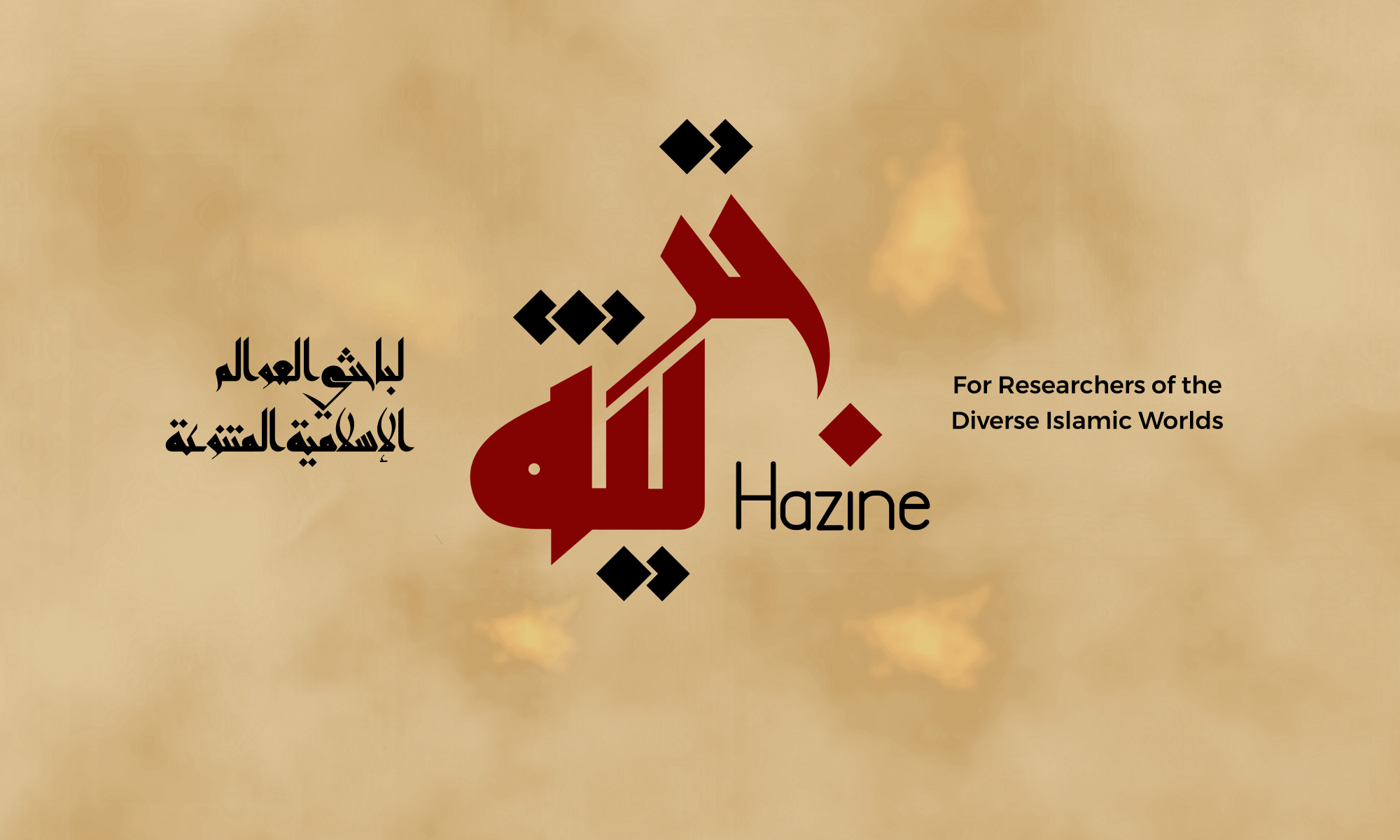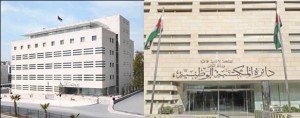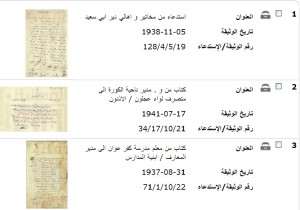Department of the National Library, Amman
The Department of the National Library in Amman, Jordan, is Amman’s main public library and the government’s center for processing its documents for archival purposes. To those interested in Jordanian political and administrative history, the Department has a selection of government documents, dating from independence until the late 1980s. However, these are also accessible online. Of greater interest is the Department’s sizable and well-preserved collection of periodicals spanning the greater Arab Middle East for the later half of the 20th century.
History
The Department’s origins lie with its predecessor, the Jordanian National Directorate for Libraries and Documents, established in 1977. In 1990, the Cultural Ministry recommended the closure of the National Directorate. In its place, it proposed the creation of a national library that would also serve as a processing center for archived government documents. Thus, the Department was inaugurated in 1994 with the stated purpose of preserving Jordanian history. Its current responsibilities include maintaining a national bibliography of all the books published in Jordan, as well as managing other libraries in the country and maintaining links with organizations abroad that process documents for archival purposes. Though unclear when it began, one of the Department’s major projects is to categorize and release governmental documents spanning an unspecified period (the 1950s to perhaps the late 1980s), presumably for research uses.
Collection
The Department’s library (3rd and 4th floor of the Department, 4th floor accessible from inside the 3rd floor) contains published materials. It houses a rather general book collection (all in Arabic, ranging from literature to copies of recent Jordanian textbooks) and the library does an excellent job ensuring it contains the latest Arabic-language publications. The search engine also allows you to run a keyword-search through the books themselves. However, the Department’s main attraction is their periodicals collection, most dating from the 1940s onwards, on the fourth floor of the Department. This includes anything from Arabic-language weeklies to bound copies of newspapers (like al-Quds). Such a well-preserved and concentrated collection of the region’s most prominent publications is an excellent resource for researchers interested in a wide range of topics.
The Department is also home to Jordan’s attempts at consolidating its governmental records dating from the 1940s. It is unclear what metric is used to determine which documents will be permitted for release, but currently, access to the hard copies is restricted to Jordanian citizens; theoretically, the number ID of the requested document would be submitted to the Documents Office (1st Floor of the Department) and documents will be released for 5 hours. To figure out which document you want and thus, its ID number, you can search keywords on the documents directory in Arabic and view a preview of the document.
However, non-Jordanians can still access these documents online through this ‘preview’ function on the search engine; the scans are remarkably clear and can be print-screened. This is a little more work than simply scanning the documents you want, but considering the Jordanian government has released very little by way of official government documents, the search engine is well-worth a visit.
The major concern with this collection is the lack of transparency; we have no way of knowing which documents have not been released and how many more documents exist. Documents might even be removed from the search engine and thus, from public use, at the government’s discretion. Additionally, documents are constantly being processed for release, which might complicate any research projects in process.
The Research Experience
The Department library is open stacks. Everything present in the library can be looked up in the catalogue. While this might work well with books- the catalogue is excellent- the periodicals are slightly more difficult to search via catalogue; even titles known to be in the stacks might not show up in a basic catalogue search. It’s more productive to browse and see what gems turn up. There is not really a procedure for re-shelving. The librarians prefer you leave any books and bound volumes at the desks in between the stacks and they’ll reshelve them at the end of the day.
There are no special requirements for access to the stacks (see Collection for conditions to access hard copies of archival materials); you simply have to sign your name in the guest-book at the library front-desk on the 3rd floor. The librarians are very friendly and helpful, but researchers without any knowledge of Jordanian dialects might struggle slightly with communication.
The Department is rarely ever busy, the library even less so. The few people who do come tend to read quietly at the many desks scattered throughout the stacks. The library has plenty of natural light, but no air-conditioning in the summer nor heating in the winter.
Access
The Department library is open to the public. The Department is open Sundays-Thursdays, from 8 AM to 3 PM, though the librarians generally like visitors out by 2.30 PM so they can have the library ready by closing time. Ramadan hours differ though, typically 9 AM to 1 PM.
The front door has a ramp installed and all floors are wheel-chair accessible via elevator except for the 4th floor which is only accessible by stairs from within the library on the 3rd floor.
Reproduction
Books and journals can be photocopied, but this must be done by speaking to a member of the staff who will gladly do it for you. There appears to be no limit to the pages that can be copied. Photographs are also allowed.
Transportation and Food
The Department is located off one of Amman’s central arteries-University Street- right next to the Sports City complex, adjacent to the Shmeisani neighborhood. It is not generally well-known by people living in the neighborhood, but is opposite the more-widely recognized Ministry of Civil Status and Passports and is also visible from in front of the Regency Hotel and the Royal Cultural Center.
You have several options for getting here from within Amman.
- Taxi: the more expensive, although somewhat more convenient option. From nearby neighborhoods (Shmeisani, Tila’ al-Ali, Jabal Weibdeh, Jabal Amman, Abdali, Abdoun, the University) this should cost you between 1-2 JD, though from beyond 6th Circle, expect to pay a little more. Tell the taxi driver to let you off at the Royal Cultural Center or the Regency Hotel, preferably near the pedestrian bridge. At the pedestrian bridge, follow Haroun al-Rashid St. until you get to the library (about a minute) on the left.
- Service: only viable if you’re coming from downtown or Weibdeh. Take the Abdali service, get off at Duwar al-Dakhiliyeh and walk in the opposite direction till you get to the first pedestrian bridge (after the Regency Hotel). At the pedestrian bridge, follow Haroun al-Rashid St. until you see the library (about a minute) on the left.
- Bus: this option is really only viable if you’re coming somewhere off University Street. If coming from Abdali, take the bus going to the University or Sweileh and tell the conductor you’re getting off at the Royal Cultural Center. If coming from the University, take the bus going to Duwar al-Dakhiliyeh and tell the conductor you’re getting off at the Royal Cultural Center. At the pedestrian bridge, follow Haroun al-Rashid St. until you get to the library (about a minute) on the left.
A map detailing the location can be found here.
The Department, being on a busy road, is far from most food options, though during the winter, food hawkers can occasionally be found on the right outside the Department selling sweets, steamed chickpeas, and corn. I recommend packing a lunch; you might not be able to eat it inside, since only water is allowed, but the Sports City park is a five minutes walk from the library and you could take a packed lunch there and eat outside. It’s a bit run-down, but there are places to sit and it’s very safe; families frequent the park at all hours to enjoy the open spaces.
Contact Information
Address: Number 9 , Haroun Al-Rasheed St.
P.O.Box: (6070)
Zip code: (11118)
City: Amman
Telephone: 06-5662791
NA Mansour is a graduate student at Princeton University’s Department of Near Eastern Studies working on the global intellectual history of the Arabic-language press. She tweets @NAMansour26 and podcasts in her spare time, working on the New Books Network’s Middle East Studies and Global Affairs Channel, along with another Middle-East and North Africa-related podcast: Reintroducing.


